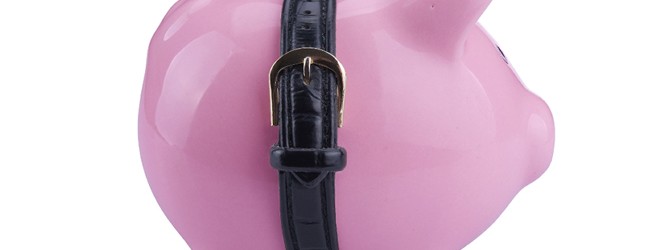It’s unfortunately for many Americans who find themselves in bottomless pits of debt that they just can’t seem to clamber out of. However, there are several methods that you can apply to your spending to reduce a considerable debt and even improve your credit rating.
Here are eight tips for do-it-yourself debt reduction…
1. Curb your spending
There are financial emergencies and then there is financial irresponsibility. The later means you spend a lot of money on unnecessary things—such as eating out, going out, and shopping for material things you don’t need more of—such as another pair of designer pumps. This makes you charge more to your credit cards and even get personal loans to pay off debt.
To reduce debt you need to live by one rule: never borrow more than you can afford to pay back, which means you really shouldn’t be spending more paper money than you have in your wallet at any given time. If you have multiple credit cards, never bring one with you shopping and don’t charge anything to it unless it’s an emergency, like a car, medical, or home repair.
2. Alert lenders
When it comes to being in debt, the best thing you can do is tell your lenders that you’re having financial difficulties right away and ask for help. Believe it or not, creditors actually care about you paying back outstanding debt—otherwise they won’t get their money back—so they will help you if they think you are honest and willing about your desire to pay back debt. So let them know before you’re about to miss a loan or credit card payment.
If you’ve had an unexpected financial emergency, say you lost your job, and it’s the first time you’ve missed a payment, chances are they will be understanding and maybe even cut you a break if you pay the balance off sooner rather than later.
3. Speak with a credit counselor
Be honest with yourself about your know-how and discipline when it comes to paying off debt. After all, if you had a water main break, you’d call a professional plumber. So in a financial emergency it makes sense to also seek about a professional in the form of a credit counselor. A professional financial planner of this kind can help you create a budget, and help you work out a repayment plan with your lenders.
4. Consolidate debt
Consolidating debt can sometimes be a wise move for those who can’t keep track of all debts. Basically it provides one lump payment that’s subtracted off all of your existing debts. A consolidated payment could include your student loans, mortgage, credit card debt, and line of credit all in one easy payment, made monthly with a low interest rate to help you get out of debt faster.
5. Get rid of high interest rate credit cards
If you have multiple credit cards and are suffering financial hardship, chances are many of them are higher interest rate credit cards. If this is the case, it’s just getting you in hotter water and higher debt. Do yourself a favor and get rid of all cards, except for one with the lowest interest rate and delegate emergency purchases to that card only. You can consolidate to one lower rate interest rate credit card faster by transferring all of your existing balances over to your lower rate card.
6. Reduce your credit limit
Just because you’re offered a $10,000 credit card limit, doesn’t mean you need to be alright with that if you know you are tempted to spend. If you know you’ll abuse a higher limit, call your credit card company and ask them to reduce your credit card limit in order to avoid future temptation.
7. Establish a monthly budget
An easy way to stop over spending is to create a weekly or monthly budget and force yourself to stick to. Your monthly budget should include all essential spending– for example, your rent or mortgage, utilities, phone, internet, groceries, car payment, and gas. It should also include a small allotted personal allowance that you are permitted to spend on entertainment.
8. Avoid temptation
Financial temptation is different for every person. Yours might be a friend that convinces you that you need to go on a shopping spree, or it might be as simple as having a credit card in your purse that you know you can use. Instead, implement ways to avoid temptation, for example, by holding a clothing swap with friends or doing dinners at home. You can also leave that credit card at home if it’s causing you trouble


Speak Your Mind